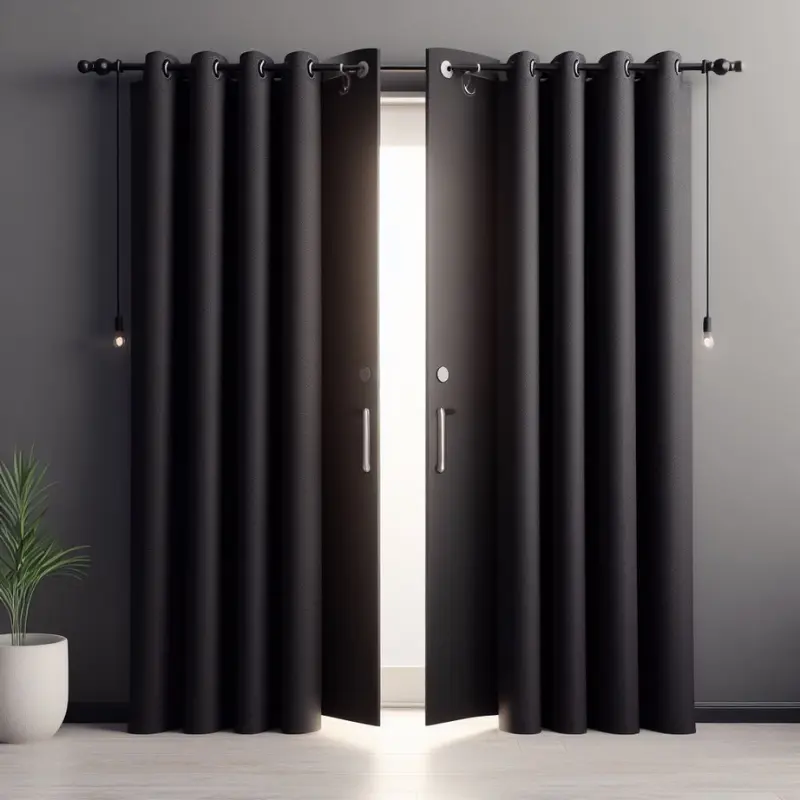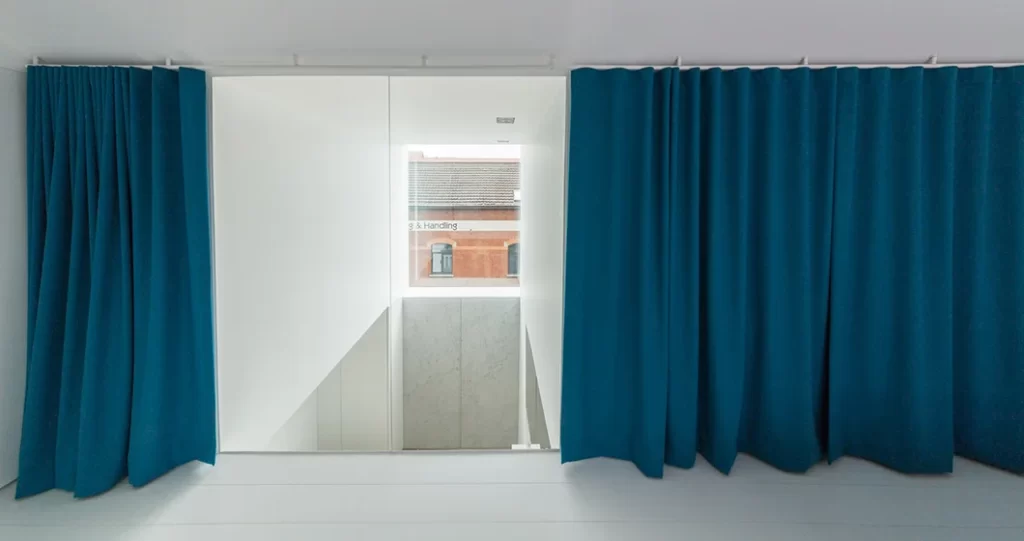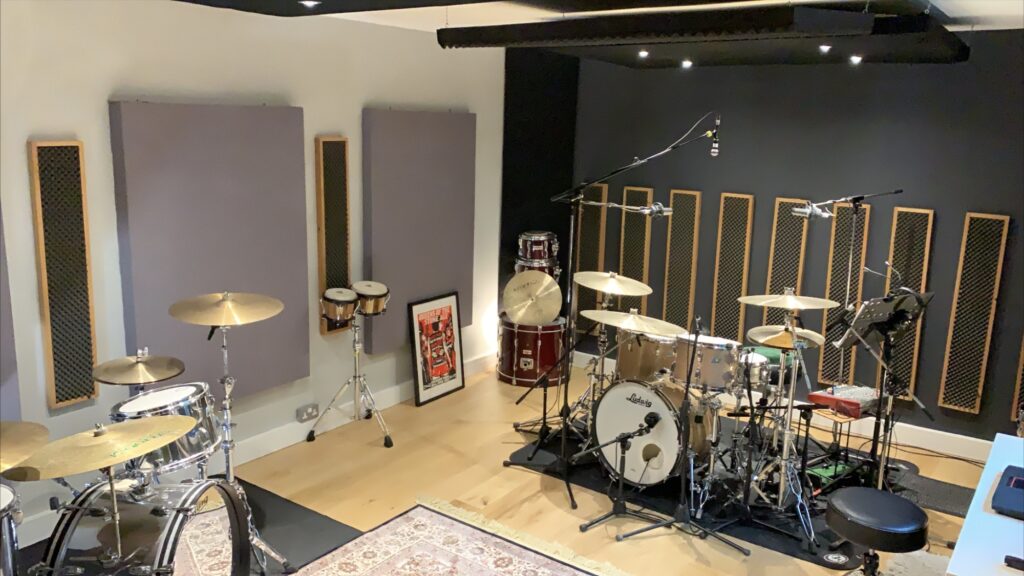Soundproof curtains have gained popularity in recent years as a solution for reducing noise levels in homes, apartments, offices, and studios. These curtains claim to block out external noises, such as traffic, construction, or neighbors’ conversations, creating a quieter and more peaceful indoor environment. But do they really live up to their claims? In this article, we’ll explore the effectiveness of soundproof curtains, how they work, and address common questions and concerns surrounding them.
Understanding Soundproof Curtains
Soundproof curtains, also known as noise-reducing curtains or sound-absorbing curtains, are made from dense and heavy materials designed to block sound waves from entering or leaving a room. Unlike regular curtains, which are often made from lightweight fabrics that allow sound to easily pass through, soundproof curtains are constructed with multiple layers of thick materials such as polyester, cotton, or vinyl, along with sound-absorbing materials like fiberglass or foam.
How Do Soundproof Curtains Work?

The effectiveness of soundproof curtains lies in their ability to absorb, reflect, and dampen sound waves. Here’s how they work:
- Mass: Soundproof curtains are typically heavier and denser than regular curtains. The added mass helps to block and absorb sound waves, preventing them from passing through the material.
- Layers: Many soundproof curtains are constructed with multiple layers of fabric and sound-absorbing materials. These layers work together to increase the curtain’s ability to reduce noise.
- Texture: The texture of the curtain’s surface also plays a role in sound absorption. Rough or irregular surfaces tend to scatter sound waves, reducing their intensity.
- Sealing: Proper installation and ensuring a tight seal around the edges of the curtains are essential for maximizing their effectiveness. Gaps or openings allow sound to leak through, diminishing the curtain’s soundproofing capabilities.
Factors Affecting Soundproof Curtain Effectiveness
While soundproof curtains can significantly reduce noise levels, their effectiveness may vary depending on several factors:
Material Quality:
High-quality soundproof curtains with dense materials and multiple layers are more effective than cheaper alternatives made from lightweight fabrics.
Thickness:
Thicker curtains generally offer better soundproofing properties than thinner ones. Look for curtains with a substantial thickness for optimal results.
Room Acoustics:
The layout and furnishings of the room can influence the effectiveness of soundproof curtains. Rooms with hard surfaces like hardwood floors and bare walls may experience more sound reflection, reducing the curtains’ effectiveness.
Frequency of Noise:
Soundproof curtains are more effective at blocking higher frequency noises like voices or traffic compared to low-frequency noises like bass from music or machinery.
Proper Installation:
Ensuring the curtains are properly installed and cover the entire window or opening without gaps is crucial for maximum noise reduction.
Conclusion
While soundproof curtains may not offer complete silence, they can significantly reduce noise levels and create a more peaceful indoor environment. By understanding how they work and considering factors such as material quality, thickness, and room acoustics, you can make an informed decision about whether soundproof curtains are the right solution for your noise reduction needs. Investing in high-quality soundproof curtains and ensuring proper installation can help you enjoy the benefits of a quieter space.
FAQs
1. Do soundproof curtains completely eliminate noise?
While soundproof curtains can significantly reduce noise levels, they may not completely eliminate all sounds, especially extremely loud or low-frequency noises. However, they can create a quieter and more comfortable environment by reducing noise to a more manageable level.
2. Can soundproof curtains block out all types of noise?
Soundproof curtains are most effective at blocking higher frequency noises like voices, traffic, or city sounds. They may not be as effective at blocking low-frequency noises like bass from music or heavy machinery.
3. How do I know if soundproof curtains will work for my space?
Consider factors such as the thickness and quality of the curtains, the frequency of the noise you’re trying to block, and the layout of your room. Reading reviews and consulting with experts can also help you determine if soundproof curtains are suitable for your space.
4. Are soundproof curtains worth the investment?
Soundproof curtains can be a worthwhile investment for individuals who are looking to reduce noise levels in their homes or offices, especially in urban areas or noisy environments. They offer a cost-effective solution compared to more extensive soundproofing methods like installing soundproof windows or doors.
5. Can I use soundproof curtains in conjunction with other soundproofing methods?
Yes, soundproof curtains can be used in combination with other soundproofing methods such as acoustic panels, weather stripping, or double-glazed windows for enhanced noise reduction.




